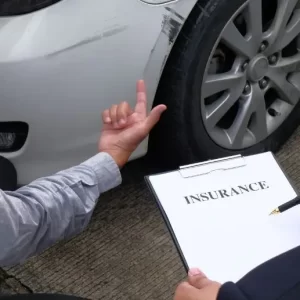Car accidents are stressful enough. Then you hear about “subrogation” and your head really starts to spin. What is it, and how does it impact your car accident claim and insurance? Let’s break it down.
What is Subrogation and How Does it Affect Your Insurance?
Subrogation is a legal right your insurance company has to recover money they paid you (or someone else on your behalf) from the at-fault party. Think of it as your insurance company stepping into your shoes to collect from the responsible party’s insurance.
A typical subrogation clause in an auto insurance policy might read: “We have the right to recover payments we have made under this policy if another party is responsible for the loss.”
Subrogation: Understanding the Basics in Car Accident Claims
In a car accident, subrogation usually happens when your insurance company pays for your damages (medical bills, car repairs, etc.) and then seeks reimbursement from the at-fault driver’s insurance company. For instance, imagine you’re rear-ended and your insurance pays $5,000 for your medical bills. Your insurance company can then pursue the other driver’s insurance to get that $5,000 back. This process involves what’s known as “car accident subrogation”.
Your Insurance Company’s Role After a Car Accident
After a car accident, your insurance company has a responsibility to investigate and pay valid claims. Subrogation is how they recoup those costs from the at-fault party. This process doesn’t cost you extra, since it’s a right defined in your insurance policy. They may contact you for information or documentation related to the accident to aid in their subrogation efforts.
How Subrogation Affects Your Car Accident Claim Settlement
Subrogation can impact your settlement in a few key ways. For one, your insurance company might be entitled to a portion of any settlement you receive from the at-fault party. This is especially relevant if your insurance covered your medical bills through Med-Pay or Personal Injury Protection (PIP). These policies may carry state-specific subrogation rights, impacting what portion of your settlement needs to be repaid.
However, many states have laws that limit or prohibit subrogation in certain circumstances, such as when the injured party wasn’t fully compensated for all their losses.
Protecting Your Rights
Cooperate with your insurance company’s investigation. Failure to do so could jeopardize their ability to subrogate, and potentially even your own coverage. Keep detailed records of all accident-related expenses.
Common Questions and Concerns
- Will subrogation raise my rates? Not typically, as it’s aimed at recouping funds from the at-fault party.
- What if the at-fault driver doesn’t have insurance? Subrogation becomes more complicated, potentially involving legal action against the driver directly.
- Does subrogation mean I get less money? Not necessarily. It means a portion of what your insurance company paid you might be recouped from the at-fault party’s insurance.
Subrogation isn’t always pursued. If the damages are low or liability is unclear, an insurer might decide it’s not worth the effort.
When to Consult an Attorney
If you’re dealing with a complex car accident claim, significant injuries, or pushback from the insurance company regarding subrogation, it’s wise to consult with an attorney. An attorney can help you understand your rights, negotiate with insurance companies, and ensure you receive fair compensation. Remember, your rights matter.






